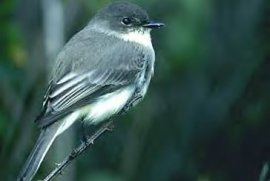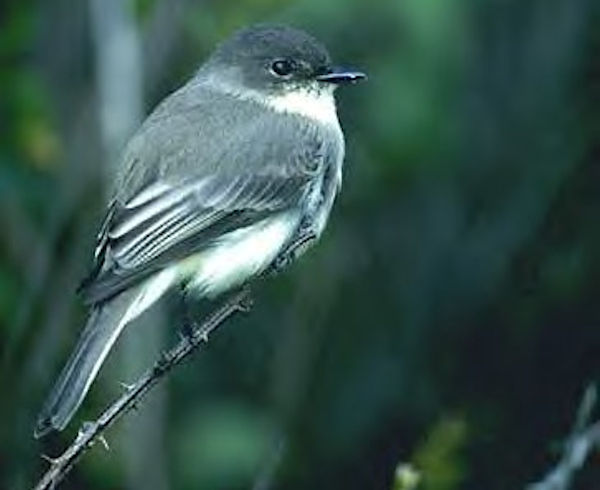Perching Birds
Description
7" (18 cm). Dull olive green without an eye ring or wing bars. Wags its tail.
Voice
Clear phoe-be, repeated many times; the second syllable is alternately higher or lower than the first. Call note a distinctive, short chip.
Habitat
Open woodlands near streams; cliffs, bridges, and buildings with ledges.
Nesting
4 or 5 white eggs in a mud-and-grass nest lined with moss and hair and attached to a ledge of a building, bridge, cliff, or quarry, or among roots of a fallen tree.
Range
Breeds in Canada and United States east of Rockies, south to northern edge of Gulf states. Winters from Virginia, Gulf Coast, and Florida southward.
Discussion
The Eastern Phoebe arrives early in spring and departs late in fall, sometimes even staying through the winter in the northern states. In the absence of insects, its winter food is berries. Extraordinarily tame at the nest, the Eastern Phoebe was probably the first bird ever banded: Audubon marked one with a silver wire on the leg in 1840 and recorded its return the following year.


